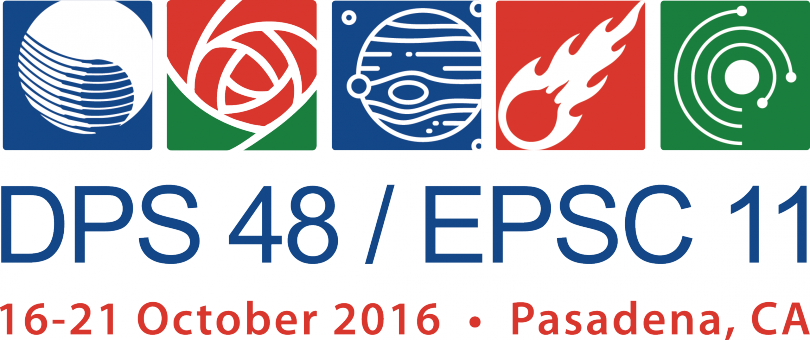DPS 48 / EPSC 11 Hotel & Late Registration Deadlines Quickly Approaching
The joint 48th Division for Planetary Sciences (DPS) and 11th European Planetary Science Congress (EPSC) meeting is just over a month away. The meeting will take place in Pasadena, California, 16–21 October 2016, and we anticipate an exciting program, including stellar plenary speakers who will discuss highlights from various missions, such as Rosetta, Akatsuki, New Horizons, Mars Science Laboratory, Juno, and Dawn, among other topics. This meeting will capture the breadth of international planetary science by combining the scientific results of the participants in the DPS and EPSC research communities at one joint meeting.
Reserve Your Hotel Room
Group rates are available for rooms at three Pasadena hotels, but hurry! Reservations must be made by 14 September to take advantage of the lower group rate. (Note: NASA has issued a per diem waiver for this meeting that allows covered travelers to be reimbursed up to $199 plus tax per night for lodging.) If you’re looking for a roommate to share the lodging expenses for the meeting, take advantage of the Roommate Search Forum to locate a match.
Last Chance to Register Online
Online registration closes on Friday, 16 September, so register today to save over onsite rates. See the registration page for details, and be sure to look at the events taking place during the meeting.
Dependent Care
The DPS’s Susan Niebur Professional Development Fund provides financial assistance to qualifying members to facilitate their meeting attendance by offsetting dependent care costs at the meeting location or at home. Complete the application by 16 September to be considered.
Look Who's Exhibiting
The Exhibit Hall will be busy all week with poster sessions, exhibit booths, an art show from local astronomical artists, and more. Take a look at the exhibitors coming to the meeting to plan ahead.
Visit the meeting website for more information. See you in Pasadena!
The Division for Planetary Sciences acknowledges the collaboration and support of its Division Partners: Europlanet, the European Space Agency, NASA Planetary, and EPSC.
Thank you to the current sponsors of the DPS 48 / EPSC 11 meeting: Johns Hopkins Applied Physics Laboratory, AURA, Nature Astronomy, Southwest Research Institute, Ball Aerospace, Nature Geoscience, Planetary Science Institute, The Planetary Society, Space Science Institute, The University of Arizona Press, USRA, and SSERVI-VORTICES.


